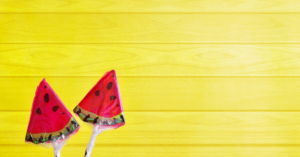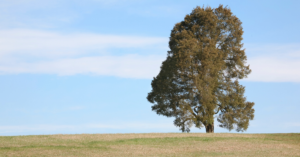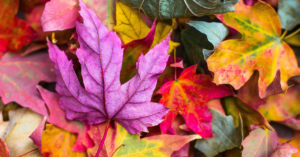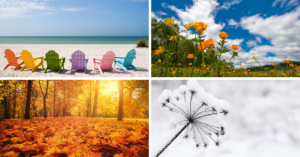In this article I am gonna tell you all about the seasons in Portuguese.
Seasons are part of the vocabulary that you should definitely know, because you will likely have to talk about them in class or in your day to day life.
Besides, it is always fun to talk about your favorite season in Portuguese and what you do in summer, winter, autumn or spring, right?
So, with no further ado, let us check them out!
Make sure to watch my YouTube video about this topic as well and hit the subscribe button to be informed about new content 🙂
Summer in Portuguese
I know, starting with summer seems a bit weird, but let me tell you a secret: this is my favorite season, so I can’t get enough of it!
Why?
Because I love warm weather and usually this is when we catch the best weather anywhere we go, am I right? OK, maybe not everywhere, but in a lot of places.
Summer in Portugal is really nice. You can catch really warm days, but in the majority of places, it is still quite bearable and you won’t be grasping for fresh air.
Where I live, in Porto, summer is actually NOT that warm. I know, it sounds weird, but it is true. Summer goes from June until beginning of September, and when I was a little girl I remember having quite hot days from May until September.
Nowadays, however, we are experiencing what I believe to be effects of the global warming and our summer has shifted. Now we have the hottest days in late August, September and October. So, if you are planning to travel here, come then 🙂

But now, how to say summer in Portuguese?
Well, the word is:
O verão
These are also some words related to summer:
(o) Sol – Sun
(o) Mar – Sea
(a) Praia – Beach
(o) Guarda-Sol / (o) Chapéu de Sol – Sun Umbrella
(o) Creme / (o) Protetor Solar – Sunscreen
(o) Chapéu – Hat
(o) Boné – Cap
(os) Óculos de Sol – Sunglasses
(o) Fato de banho – Bathingsuit
(o) Biquini – Bikini
(os) Calções de banho – Bath Shorts
(os) Chinelos – Flip-Flops
(a) Toalha
Springtime in Portuguese
What about spring?
I also quite enjoy spring and springtime in Portugal is quite pleasant.
We start having good days (sunny, but somehow still cold) as early as February and around April and May, you can catch really great days.
Be aware, however, that it can also still rain a lot and you can catch quite cold days.
So, there is a good mix.
In the coast it tends to rain more than inland, but the temperatures tend to be colder inland than in the coast.

How do we say spring in Portuguese?
Spring is:
A primavera
This is funny because if you divide the word in two, you end up with Prima + Vera, which means Cousin Vera. That gives way to a lot of funny jokes, like:
- A primavera (prima Vera) já chegou! (Spring (cousin Vera) has already arrived).
- Já? Com quem é que ela veio? (Has she? With whom did she come?)
You see the picture he he.
Here also some vocabulary related to spring:
(as) Flores – Flowers
(os) Pássaros – Birds
(as) Árvores – Trees
(as) Plantas – Plants
(o) Renascer – Rebirth
Autumn in Portuguese
The word you are looking for is:
O outono
Autumn is varied here in Portugal. What do I mean by this?
Well, as I already mentioned before, September and October are still quite warm in Portugal. However, November, December and January can be quite cold, windy and even snowy in some places.
What we do have is a lot of fallen leaves, like what happens in many other places in the world.

So, let me tell you some vocabulary related to this season:
(as) Folhas – Leaves
(o) Vento – Wind
(a) Chuva – Rain
(as) Nuvens – Clouds
(a) Tempestade – Storm
(o) Guarda-chuva – Umbrella
Winter in Portuguese
Finally, the last season I will teach you is Winter:
O inverno
Winter in Portugal can be quite cold. In more inland places it can even get to negative degrees.
In Porto, even if we don’t often get temperatures below zero, it can get really cold because of the wind coming from the sea and the high humidity.
In the south, the weather tends to stay more or less stable and not too cold, especially in cities and villages near the sea.

Here are some words that you can hear when speaking about winter:
(o) Casaco – Jacket
(as) Botas – Boots
(as) Galochas – Wellington Boots
(a) Neve – Snow
(o) Boneco de Neve – Snowman
And these are the four seasons in Portuguese! But before I go, I want to tell you how to say the seasons of the year in Portuguese:
As estações do ano

Now that you know the seasons in Portuguese, you can go out and start speaking about your favourite one and what you like the most about it!
Let me know your favourite season in the comments below 🙂
Also, don’t forget to check the Youtube video above and leave me a thumbs up! 🙂
If you want to learn more about European Portuguese make sure to check out my online courses.
Beijinhos,
Mia.


Interesting fact:-
In Japan 🗾 , people usually bake sweet potatoes during autumn 🍁🍂 on fallen leaves
That’s interesting, thank you 🙂
Meu favorito é verão também.
🙂
Olá Mia!
Tenho um pergunta sobre as estações em português. Quando se escreve com maiúscula e quando não?
Beijinhos da Alemanha
Linda
Olá Linda!
Com o Novo Acordo Ortográfico, tens que escrever as estações do ano com letra minúscula sempre. A não ser que estejas a escrever no título ou que seja a primeira palavra da frase 🙂
Eu ainda tenho que me adaptar a isto, porque eu aprendi na escola que as estações do ano eram sempre escritas com letra maiúscula, mas desde que o Novo Acordo entrou em vigor, temos que escrever com minúscula.
Espero ter ajudado 🙂
Beijinhos,
Mia.
Thank you for the seasons video. I enjoyed learning a group of words related to a topic. It’s nice to see your cheerful face. Chow!
Oh, thank you 🙂 I am glad you enjoyed the video and that it helped you learn some new vocabulary.
Muito obrigada pelo teu comentário.
Beijinhos,
Mia.
eu adoro a primavera!
A primavera é muito bonita, sim!
Not my favourite season as requested, but when I saw here the word tempestade, it reminded me that I used it quite a lot on Madeira one year because my favourite song by Mariza is Quem Me Dera and so I Iooked up (and tried to learn) the words of the song which of course include temp(e)stad(e).
It was also the song that had a word that amused me – *outdoors* da cidade.
Aha! Thank you for sharing that story with us 🙂 That just comes to prove that using songs to learn a language is always a good practice, because we connect emotionally to the words we are learning 🙂
Keep up the good work and thank you for your comment once again! Beijinhos, Mia.